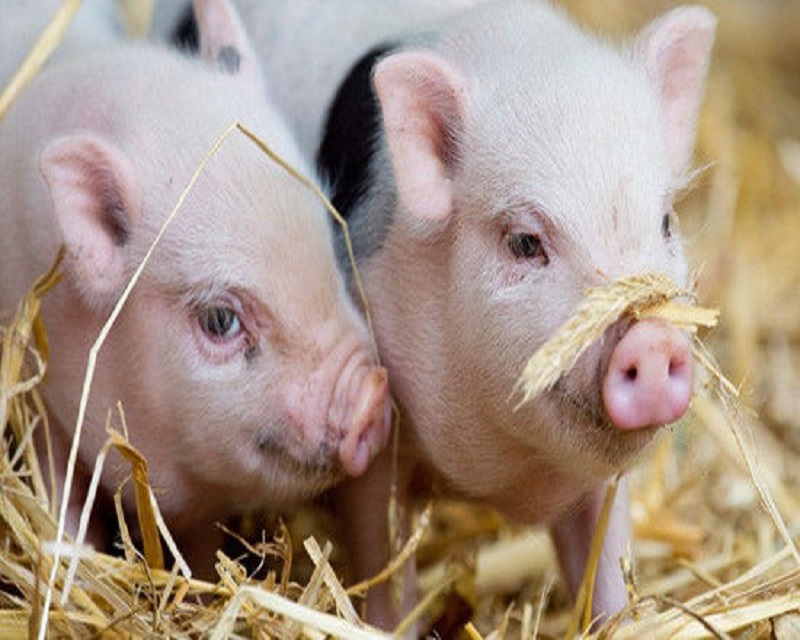Adding Potassium Diformate in Grower-Finisher Swine Diets
The use of Antibiotics as growth promoters in livestock production is increasingly under public scrutiny and criticism. Development of resistance of bacteria to antibiotics and cross-resistance of human and animal pathogens associated with sub-therapeutic and/or improper use of antibiotics are the major concerns.
In EU countries, the use of antibiotics for enhancing animal production has been banned. In the U.S., the American Association’s policymaking House of Delegates approved a resolution at its annual meeting in June urging that “non-therapeutic” use of antibiotics in animals be phased out or eliminated. The measure refers specifically to antibiotics that are given to humans as well. It wants the government to phase out the overuse of antibiotics in livestock, broadening the organization’s campaign to curb human resistance to lifesaving drugs. Antibiotic use in livestock production is under government review and measures to control drug resistance is under development. In Canada, the use of Carbadox is currently under Health Canada. s review and facing a possible ban. Therefore, it is clear that the use of antibiotics in animal production will become more and more restricted and alternatives to antibiotic growth promoters need to be investigated and deployed.
As a result, research is continually being conducted to study alternatives for replacing antibiotics. Alternatives under studying range from herbs, probiotics, prebiotics and organic acids to chemical supplements and management tools. Numerous studies have demonstrated that formic acid is effective against pathogenic bacteria. In practice, however, due to the problems of handling, strong odor and corrosion to feed processing and feeding and drinking equipment, its use is limited. To overcome the problems, potassium diformate (K-diformate) has received attention as an alternative to formic acid because it is easier to handle than the pure acid, while it has been shown effective in enhancing growth performance of both weaner and grower-finisher pigs. A study conducted by researchers at the Agricultural University of Norway (J. Anim. Sci. 2000. 78:1875-1884) showed that dietary supplementation of potassium diformate at 0.6-1.2% levels improved growth performance, carcass quality and meat safety in grower-finisher pigs without negative effects on sensory pork quality. It was also showed that unlike potassium diformate supplementation of Ca/Na-formate had no effects at all on growth and carcass quality.
In this study, a total of three experiments were conducted. In experiment one, 72 pigs (23.1 kg initial body weight and 104.5 kg body weight) were assigned to three diet treatments (Control, 0.85% Ca/Na-formate and 0.85% potassium-diformate). Results showed that the K-diformate diet increased overall average daily gain (ADG) but had no effect on average daily feed intake (ADFI) or gain/feed (G/F) ratio. Carcass lean or fat content was not affected by either potassium -diformate or Ca/Na-formate.
In experiment two, 10 pigs (initial BW: 24.3 kg, final BW: 85.1 kg) were used to study the effect of K-diformate on performance and sensory quality of pork. All the pigs were on a limit-fed feeding regime and fed the same diets except for adding 0.8% K-diformate in the treatment group. Results showed that supplementing K-diformate to diets increase ADG and G/F, but it had no effect on sensory quality of the pork.
In experiment three, 96 pigs (initial BW: 27.1 kg, final BW: 105kg) were assigned to three diet treatments, containing 0, 0.6% and 1.2% K-diformate respectively, to study the effect of supplementing K-diformate in diets on growth performance, carcass traits and, microflora of the gastrointestinal tract. The results showed that supplementation of K-diformate at 0.6% and 1.2% level increased growth performance, reduced fat content and improved carcass lean percentage. It was found that adding K-diformate reduced the number of coliforms in gastrointestinal tract of the pigs, therefore, improving pork safety.
|
able 1. Effect of dietary supplementation of Ca/Na diformate and K-diformate on growth performance in Experiment 1 |
||||
|
Item |
Control |
Ca/Na-formate |
K-diformate |
|
| Growing period |
ADG, g |
752 |
758 |
797 |
|
G/F |
.444 |
.447 |
.461 |
|
| Finishing period |
ADG, g |
1,118 |
1,099 |
1,130 |
|
G/F |
.377 |
.369 |
.373 |
|
| Overall period |
ADG, g |
917 |
911 |
942 |
|
G/F |
.406 |
.401 |
.410 |
|
|
Table 2. Effect of dietary supplementation of K-diformate on growth performance in Experiment 2 |
|||
|
Item |
Control |
0.8% K-diformate |
|
| Growing period |
ADG, g |
855 |
957 |
|
Gain/Feed |
.436 |
.468 |
|
| Overall period |
ADG, g |
883 |
987 |
|
Gain/Feed |
.419 |
.450
|
|
|
Table 3. Effect of dietary supplementation of K-diformate on growth performance and carcass traits in Experiment 3 |
||||
|
K-diformate |
||||
|
Item |
0 % |
0.6% |
1.2% |
|
|
Growing period |
ADG, g |
748 |
793 |
828. |
|
Gain/Feed |
.401 |
.412 |
.415 |
|
|
Finishing period |
ADG, g |
980 |
986 |
1,014 |
|
Gain/Feed |
.327 |
.324 |
.330 |
|
|
Overall period |
ADG, g |
863 |
886 |
915 |
|
Gain/Feed |
.357 |
.360 |
.367 |
|
|
Carcass Wt, kg |
74.4 |
75.4 |
75.1 |
|
|
Lean yield, % |
54.1 |
54.1 |
54.9 |
|
